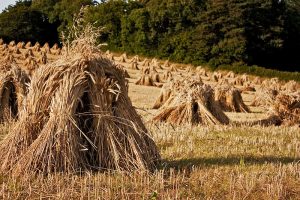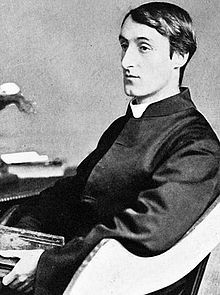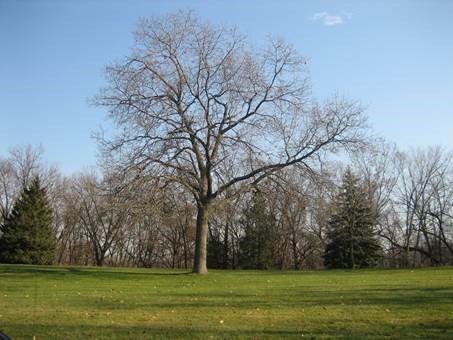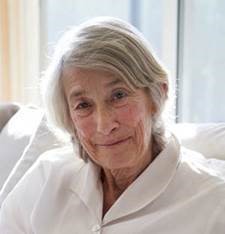Wednesday, October 21
“Summer ends now, now
barbarous in beauty the stooks arise around”
Getting ready for a rainy day — each day a little shorter and the sun a little lower in the sky, sunrise a little farther to the south. This is a season when how far north or south one lives can get our attention. I love it that we have a large open space in the northeast corner of the McNichols Campus and that McNichols Road (aka 6 Mile) makes our northern boundary a true east-west survey line, keyed to 8 Mile Road (which dates to the 1789 Northwest Territory survey mapping project). All that makes it easier to locate this campus against the majestic march of sunrise all through the year, and can remind us, too, that Detroit has been around a while. Do I go a little nuts in autumn? Sure do. You?
19th century Jesuit poet, Gerard Manley Hopkins, loved autumn also (see today’s poem just below). Even more than most great poets, GMH rewards investment in the sounds of his language. Best to read out loud, with pauses, several times and, maybe, enjoy the sky?
p.s. for a working definition of “stooks” see the caption below the harvest field after Hopkins’ poem.
Have a blest day,
john sj
Today’s post — “Hurrahing in The Harvest”
Summer ends now; now, barbarous in beauty, the stooks arise
Around; up above, what wind-walks! what lovely behaviour
Of silk-sack clouds! has wilder, wilful-wavier
Meal-drift moulded ever and melted across skies?
I walk, I lift up, I lift up heart, eyes,
Down all that glory in the heavens to glean our Saviour;
And, éyes, heárt, what looks, what lips yet gave you a
Rapturous love’s greeting of realer, of rounder replies?
And the azurous hung hills are his world-wielding shoulder
Majestic—as a stallion stalwart, very-violet-sweet!—
These things, these things were here and but the beholder
Wanting; which two when they once meet,
The heart rears wings bold and bolder
And hurls for him, O half hurls earth for him off under his feet.
“ . . . now, barbarous in beauty, the stooks arise
Around . . .”
“stooks” = “a group of sheaves of grain stood on end in a field.”
Gerard Manley Hopkins
28 July 1844 – 8 June, 1889















